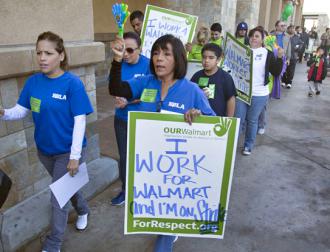Obama making a moral case
speaking without notes or teleprompter
speaking passionately, lucidly
making it a moral case
Would that we saw this all the time, on the issues that really matter to the American people
For this moment, I am proud of the man for whom I twice voted for President
forget anything else for this moment
when I see this, when I hear this, even as I know that we are responsible for what happens, we cannot just depend upon leaders, nevertheless on this issue I have no trouble supporting this leader.
He was willing to call the NRA on its lies
He was willing to call out Senators of both parties for their political cowardice
He was willing to lay down a marker for the American people
speaking passionately, lucidly
making it a moral case
Would that we saw this all the time, on the issues that really matter to the American people
For this moment, I am proud of the man for whom I twice voted for President
forget anything else for this moment
when I see this, when I hear this, even as I know that we are responsible for what happens, we cannot just depend upon leaders, nevertheless on this issue I have no trouble supporting this leader.
He was willing to call the NRA on its lies
He was willing to call out Senators of both parties for their political cowardice
He was willing to lay down a marker for the American people
An important column from Harold Meyerson
in today's Washington Post.
Let me begin with the ending:
Yet minimizing the number of employees would SEEM to be an appropriate path for a CEO to follow, as Meyerson notes in his opening paragraph:
Let me begin with the ending:
Problem is, the Wal-Mart model of employment and service not only reflects but also reinforces the declining economic prospects of the majority of Americans. The nation’s largest private-sector employer has used its market power to impose its low-wage model all along its supply chain, leaving millions of Americans with no shopping option other than the kind of discount, and frustrating, experience that Wal-Mart provides. The U.S. economy that Wal-Mart has built — with plenty of help from Wall Street and the government — is in the shape of a downward spiral, and it will take all our ingenuity, and a mass movement for worker power, to free ourselves from that path.This paragraph caught my attention because it ironically reminded me of Henry Ford, who chose to pay his workers enough that they could afford to buy the cars they manufactured: many did and Ford became very wealthy, partly because of that.In Taking the ‘service’ out of the service sector Meyerson presents us with a picture of which many may already be aware - taking the approach of slashing the workforce may not be healthy for the long-term viability of the company, and cites as examples J. C. Penney, which just fired a CEO who took precisely that path, and Walmart, which is now becoming known for shelves that appear bare because it lacks sufficient employees to keep them stocked.
Yet minimizing the number of employees would SEEM to be an appropriate path for a CEO to follow, as Meyerson notes in his opening paragraph:
For decades, U.S. corporations have been told to slim down. Not to abandon corporate jets or cut

